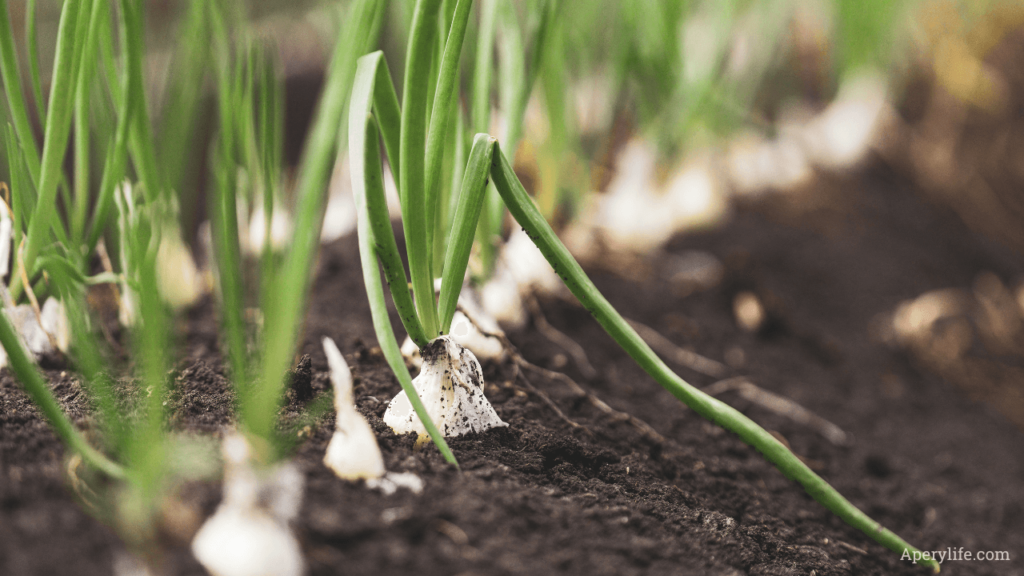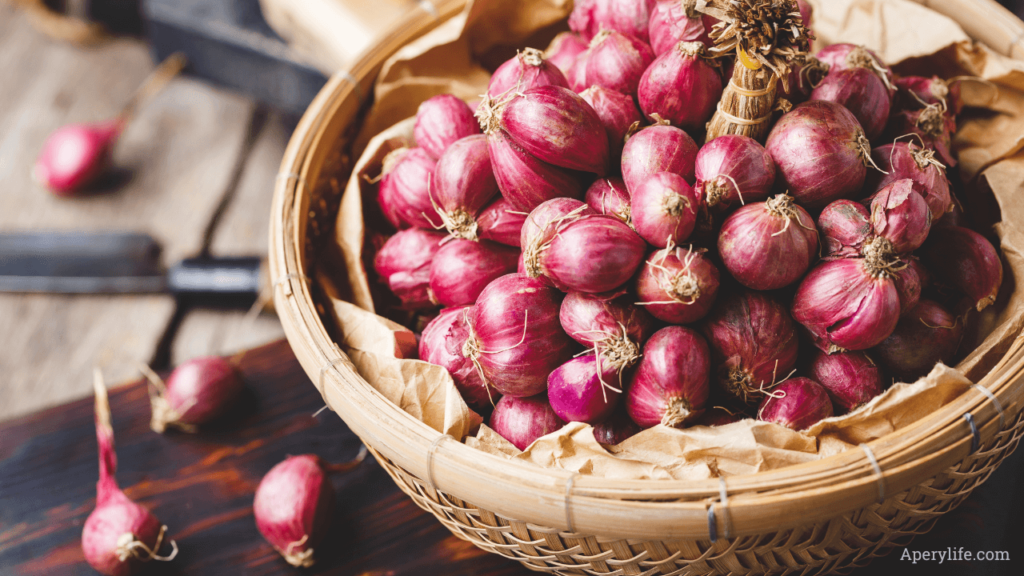An Essential Aroma in Cooking
The onion, with its sweet and slightly pungent taste, is one of the most used ingredients in cooking worldwide. Present in a variety of dishes, from soups to sauces, it can enhance flavors and add depth to any preparation. But beyond being a culinary star, the onion also offers numerous health benefits.
Origins and History
The onion has ancient origins, with traces of its use dating back over 5,000 years. The ancient Egyptians considered it a symbol of eternity and used it not only in cooking but also during religious rituals and as a funerary offering. Its use spread to the Greek and Roman worlds, where it was used both as food and as a natural remedy for various ailments. Since then, the onion has traveled through continents and cultures, establishing itself as one of the most versatile and indispensable vegetables.
Description
The onion (Allium cepa) belongs to the Liliaceae family, the same as garlic, leeks, and shallots. It is a bulb composed of several concentric layers, covered by a thin, crispy membrane. There are different varieties of onion, each with distinctive characteristics:
- White onion: with a delicate and sweet flavor, perfect for salads and fresh dishes.
- Red onion: with a stronger, slightly spicy taste, ideal for raw consumption or in sweet-and-sour dishes.
- Golden onion: very versatile, it is the most used in cooking due to its balanced flavor, perfect for sautés, sauces, and long cooking.
- Tropea onion: renowned for its sweetness, it is typical of Calabria and is often used for preserves and traditional dishes.
Nutritional Properties
Onions are rich in essential vitamins and minerals for our body, including vitamin C, B vitamins, potassium, magnesium, and sulfur. They are also known for their antioxidant, anti-inflammatory, and antibacterial properties. Among the main health benefits are:
- Improved digestion: thanks to sulfur compounds, it promotes the production of gastric juices.
- Diuretic action: it helps eliminate excess fluids, aiding in body detoxification.
- Immune system support: the presence of quercetin and vitamin C boosts natural defenses.
- Antibacterial properties: onions have long been used in folk medicine to fight colds and infections.
- Heart health benefits: they help regulate cholesterol levels and reduce blood pressure.
How to Grow Onions
Growing onions is simple and requires little care. Here are some useful tips:

- Soil: Onions prefer well-drained soil rich in nutrients.
- Planting: You can plant them in autumn or spring. Plant the bulbs about 2 cm deep, keeping a distance of 10-15 cm between them.
- Care: They require moderate watering and good sunlight exposure. It is important to regularly remove weeds to prevent them from absorbing nutrients from the soil.
- Harvesting: Onions are ready to be harvested when the leaves begin to yellow and bend. Once harvested, they should be left to dry in a ventilated place before being stored.
Using Onions in Cooking
Onions are an extremely versatile ingredient used in countless culinary preparations. Here are some ways to make the most of their potential in the kitchen:
- Sauté: It is the base of many Italian recipes, from sauces to risottos. Finely chopped onion, sautéed in oil or butter, releases its delicate and characteristic aroma.
- Caramelized onions: Cooked slowly with sugar and balsamic vinegar, onions become sweet and perfect for accompanying meat or cheese dishes.
- Salads: Red or white onions, thinly sliced and added raw to salads, bring freshness and crunchiness.
- Onion soup: A French culinary specialty, onion soup is a simple but flavorful dish, enriched with croutons and grated cheese.
Curiosities About Onions
- Throughout history, onions have also been used for non-culinary purposes: in the past, their juice was used to clean weapons and armor.
- Some studies suggest that cutting an onion may release volatile compounds that help improve blood circulation.
- Legend has it that placing a slice of raw onion on insect bites can relieve itching.
Tips for Buying and Storing Onions
When buying onions, it is important to select them based on their freshness and the integrity of the bulb. Here are some tips:

- Appearance: The onion should be firm, with a smooth and dry skin. Avoid those with spots, sprouts, or that feel soft to the touch.
- Storage: Store them in a cool, dry place, away from direct light. It is not recommended to store onions in the refrigerator, as humidity causes them to sprout quickly.
- Freezing: You can freeze chopped onions to always have a ready supply.
Conclusion
Onions are a key ingredient in many cultures’ cuisines, appreciated for their unique flavor and numerous health benefits. Versatile and rich in nutrients, onions deserve a place of honor in every kitchen, not only as a base for countless dishes but also as a main ingredient capable of transforming a simple recipe into a flavorful experience.
Reproduction reserved © Copyright Aperylife.com